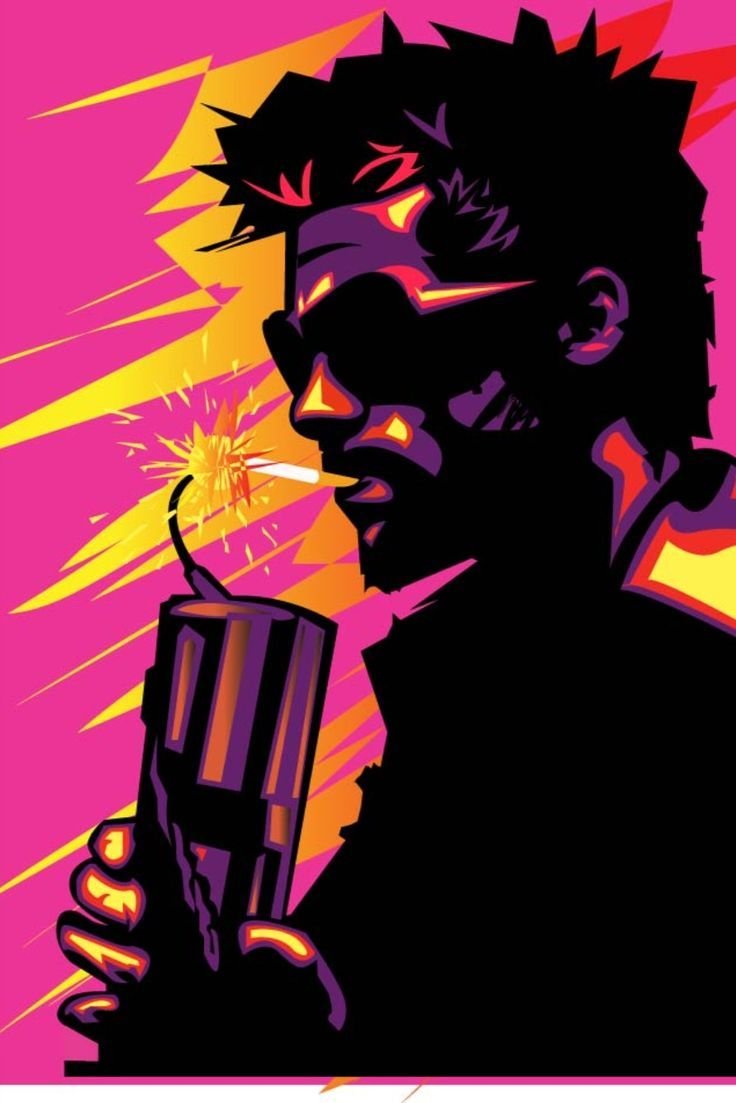Introduction
Tyler Durden is a fictional character from the 1996 novel “Fight Club” by Chuck Palahniuk, and the subsequent 1999 film adaptation directed by David Fincher. The character has become an iconic symbol of rebellion, anti-establishment ideology, and the complexities of identity and masculinity in modern culture. This essay explores the character’s origins, development, and impact on both literature and popular culture.
Origins and Creation
1. Chuck Palahniuk’s Novel Tyler Durden first appeared in Palahniuk’s debut novel, “Fight Club.” The novel explores themes of consumerism, existentialism, and the quest for identity. Tyler is introduced as the charismatic and anarchistic alter ego of the unnamed protagonist, often referred to as the Narrator. Palahniuk created Tyler as a means to critique modern society’s obsession with material possessions and the emasculation of men in a consumer-driven world.
2. David Fincher’s Film Adaptation In the 1999 film adaptation, Tyler Durden was portrayed by Brad Pitt, with Edward Norton playing the Narrator. The film, although initially controversial and not an immediate box office success, has since become a cult classic. Fincher’s visual style and the performances of Pitt and Norton brought Tyler Durden to life in a way that resonated with a generation disillusioned by the corporate culture of the late 20th century.
Character Analysis
1. Duality and Identity Tyler Durden embodies the duality of human nature. He represents the darker, more primal side of the Narrator’s personality. This duality is central to the plot, as the Narrator slowly realizes that Tyler is a figment of his imagination, a projection of his deepest desires and frustrations. This split personality highlights the internal struggle between conforming to societal norms and the desire for individuality and freedom.
2. Rebellion and Anarchy Tyler is the epitome of rebellion against societal norms and consumer culture. He advocates for a return to primal instincts, rejecting the materialism and superficiality of modern life. This is epitomized in his creation of Fight Club, a secret society where men gather to physically and psychologically break free from their societal constraints. Tyler’s philosophy is encapsulated in his famous line, “It’s only after we’ve lost everything that we’re free to do anything.”
3. Influence and Manipulation Tyler’s charisma and radical ideas make him a powerful and influential figure. He manipulates those around him, including the Narrator, to further his anarchistic agenda. His creation of Project Mayhem, an organization dedicated to societal disruption, showcases his ability to influence and mobilize people towards a common cause, even if that cause is chaotic and destructive.
Themes and Symbolism
1. Critique of Consumerism One of Tyler’s main philosophies is a critique of consumerism. He sees the modern man’s identity as being intertwined with material possessions, leading to a loss of individuality and purpose. The famous line, “The things you own end up owning you,” encapsulates this idea. Tyler’s rejection of consumer culture and his promotion of minimalism resonate with those who feel trapped by societal expectations.
2. Masculinity and Identity Crisis “Fight Club” addresses the crisis of masculinity in contemporary society. Tyler Durden represents a hyper-masculine ideal, counteracting the emasculated state of the modern man. This theme is explored through the physical and psychological transformation of the Narrator as he embraces Tyler’s philosophy. The violent and raw nature of Fight Club serves as an outlet for men to reclaim their sense of masculinity and purpose.
3. Nihilism and Existentialism Tyler Durden’s worldview is deeply nihilistic. He believes that life is meaningless and that traditional values and structures are inherently flawed. This existential crisis is a driving force behind his actions and philosophies. By embracing chaos and rejecting societal norms, Tyler seeks to find meaning in a world he perceives as devoid of it.
Cultural Impact
1. Influence on Popular Culture Since its release, “Fight Club” has had a profound impact on popular culture. Tyler Durden has become a symbol of anti-establishment rebellion and a critique of modern society. Quotes and philosophies from the character are frequently referenced in various media and have been adopted by those who resonate with his radical views.
2. Legacy and Interpretation Tyler Durden’s character has been subject to various interpretations and analyses. Some view him as a heroic figure fighting against the constraints of society, while others see him as a cautionary tale of the dangers of unchecked nihilism and anarchy. The complexity of his character allows for diverse interpretations, making him a lasting figure in both literary and cinematic history.
Conclusion
Tyler Durden is more than just a fictional character; he is a symbol of the struggles and contradictions inherent in modern society. His critique of consumerism, exploration of masculinity, and embrace of nihilism challenge readers and viewers to reflect on their own lives and the world around them. Through both Chuck Palahniuk’s novel and David Fincher’s film, Tyler Durden remains an enduring and provocative figure in popular culture, embodying the eternal conflict between individuality and conformity.

